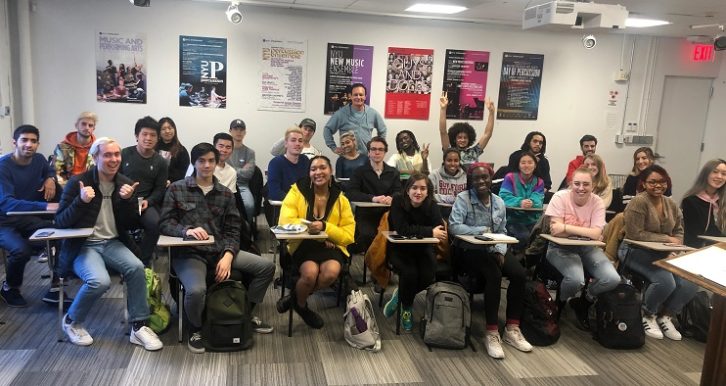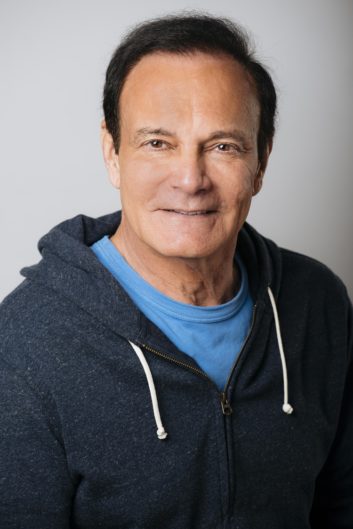
Perhaps nothing spreads through the U.S. commercial radio industry’s C-suites faster than some juicy water cooler talk from Jerry Del Colliano.
Clippings from Del Colliano’s online newsletter often bash the corporate strategies of iHeartMedia and Entercom. But the publisher of Inside Music Media doesn’t see himself as a critic of the leadership at those companies.

Nevertheless he has called iHeartMedia a “zombie” company that exists simply to keep up with debt payments. He believes Entercom is on a path toward voluntary reorganization or bankruptcy in 2022 unless it quickly recovers from the economic chaos of COVID-19. He says Cumulus is living on a “hall pass” from the financial markets due to the pandemic.
Del Colliano also has been critical of the NAB, calling the group “National Assassination of Broadcasting,” and has castigated the Federal Communications Commission for radio deregulation that he feels has allowed major broadcast groups to shed countless jobs.
“Think about this: Radio broadcasters no longer need a local presence in their market of license. What a wonderful thing for radio broadcasters,” Del Colliano says sarcastically. “That’s ridiculous.”
“Making a mess of it”
It’s clear to followers that Del Colliano speaks with a passion about an industry he grew up in.
He began his broadcast career working on air for the campus radio station while a student at Temple University. He worked in radio and TV programming and management in Philadelphia for years and is the former owner and publisher of trade publication Inside Radio.
Now he is a professor at NYU Steinhardt Department of Music and Performing Arts Professions Music Business Program. He also has taught at the University of Southern California.
The New Jersey native often writes in his newsletter with a particular focus on the actions of major broadcast groups that he believes have doomed the radio business.
“iHeartMedia, Entercom and Cumulus are making a mess of it right now. This is not the radio industry we are capable of being. It’s not a radio industry that’s going to survive,” Del Colliano said.
“It’s an industry that has been hijacked by a bunch of carpetbagger private equity people who have gone in and wrecked it.”
Sweeping programming changes introduced recently by iHeartMedia and Entercom to use out-of-market voicetracking to replace local on-air talent in many markets have been a frequent target of his ire.
“It’s the assassination of live shows in just about any daypart. These groups claim they are improving the local product by using regional or national syndicated talent and centralizing operations, but being local wins every time,” he said.
He says the beginnings of the radio industry’s troubles can be traced to the Telecommunications Act of 1996, which allowed for mass radio consolidation.
“I don’t think radio has been a business that has done well with consolidation,” he said. “Just look at it. Who can say that consolidation has been good for the industry?”
He feels he can point directly to why radio began to fail.
“The thing that made radio bulletproof is the exact thing these big groups have eliminated: being live and local. iHeartMedia and Entercom run up billions of dollars in debt, they cut back, they eliminate talent and they do programmatic selling. It’s as if they are looking for ways to destroy themselves.”
In fact, Del Colliano isn’t afraid to name names when it comes to the management of radio portfolios.
“David Field at Entercom is about as qualified to run a radio group as I am to be in private equity. He botched the CBS Radio merger. I mean everyone wanted CBS Radio. How do you screw that up? And that was before COVID-19 so he can’t blame that,” he said.
Going around the horn, Del Colliano says of Mary Berner at Cumulus: “She’s a very nice person, but she is from a private equity background. She is at Cumulus because she knew how to get them through bankruptcy, not operate them as a successful radio group.”
As for iHeartMedia, Del Colliano says he believes the cost-cutting by Chairman and CEO Bob Pittman only invited John Malone of Liberty Media to come in and position himself to “steal the company for pennies on the dollar. And (Malone) will run it on the cheap like we have never seen before.”
Liberty Media Corp, which already controls Sirius XM and Pandora, has a 5 percent stake in iHeartMedia, but in July the U.S. Department of Justice gave its permission for Liberty Media to increase its shares in iHeartMedia up to 50 percent.
“And you know how this is going to go. Do I have to spell this out to you? Liberty Media buys distressed properties. Pandora was distressed. Sirius XM was distressed. They get a few board seats and boom they will have their own people running iHeartMedia.
“Then he will gut it. It will operate with so few people you can’t believe. And he’ll use a lot of the programming strategies of satellite radio to program a terrestrial group of stations. No local staff and national formats piped into all the 800 and some radio stations. There will be further homogenization of radio,” he said.
“It was never personal”
Del Colliano teaches media, music discovery, streaming and immersive technologies at NYU, mostly via Zoom these days. In his class “Music in the Media Business,” he says young students tell him they have no need for radio.
“Go to any college campus. To them Spotify is the new radio. In fact, just look at people under 30 years old. Look at the next new car when you buy it. People are more worried about getting the Apple CarPlay to work than finding the radio in the dash.”
And AM radio has been left to die, Del Colliano said, despite recent “revitalization” actions by the FCC.
“(AM) is not sustainable. You have major broadcast groups now turning off their stations. I don’t think all-digital is a way forward when you render all analog radios obsolete.”
Del Colliano thinks AM could have become a podcast platform.
“Radio really missed an opportunity. All of these different shows featuring only the spoken voice. It would have been perfect for AM, but instead the big radio groups wanted Premiere’s Rush Limbaugh on their AM stations coast to coast. It’s exactly that type of programming on AM that caused podcasting.
“And I don’t buy the sound quality argument that AM just doesn’t sound good enough. Most people listen to podcasts through tiny earbuds.”
The internet pool that entertainment platforms are playing in now is so huge and so fragmented, Del Colliano says, Gen Z might not miss radio if it went away entirely.
“Young people would never trade Spotify or Apple Music for radio. They would sooner have playlists and the systems that are in place today. Over-the-air radio is still so antiquated,” he said.
Del Colliano says he often receives anonymous tips with information on the dealings of the major radio groups.
“But you might be surprised that I get a lot of the information from the people I write about. CEOs are fascinating people. They like to talk about themselves and each other. I have built a lot of trust with them. They know I will vet the information they give me,” Del Colliano said.
In fact, he calls Cumulus’ Berner “a friend” and even remains friendly with former Cumulus Media CEO Lew Dickey, who was often a target of Del Colliano’s scorn until he left the company five years ago.
“I skewered him bad, but it was never personal. Lew has spoken to my class at NYU. I use his book ‘The New Modern Media’ in my class. I just disagreed with the way he ran Cumulus.”
Del Colliano predicts radio groups that maintain a local presence will eventually enjoy better ratings and increased revenue compared to those who centralize operations. He mentioned Hubbard, Saga, Beasley and Alpha Media as examples.
“And that’s because those stations will continue to do what radio does best: be live and local. They’ll have programmers in the local markets. They’ll have sales people in the local markets.”
But he insists it will take an industrywide effort for radio to survive.
“It’s going to be a big lift. It’s going to take more than one person to turn the industry around. It’ll take a number of people who decide the right way to move forward is decentralizing the corporate structure of programming and sales and making radio local again,” Del Colliano said.
He concluded: “Then perhaps the greed of the consolidators might end and help radio save itself from private equity mismanagement.”
RW welcomes comment on this or any story. Email radioworld@futurenet.com with “Letter to the Editor” in the subject field.
"soft" - Google News
December 14, 2020 at 02:30AM
https://ift.tt/2KmptVm
No Soft Edges From Jerry Del Colliano - Radio World
"soft" - Google News
https://ift.tt/2QZtiPM
https://ift.tt/2KTtFc8
Bagikan Berita Ini














0 Response to "No Soft Edges From Jerry Del Colliano - Radio World"
Post a Comment